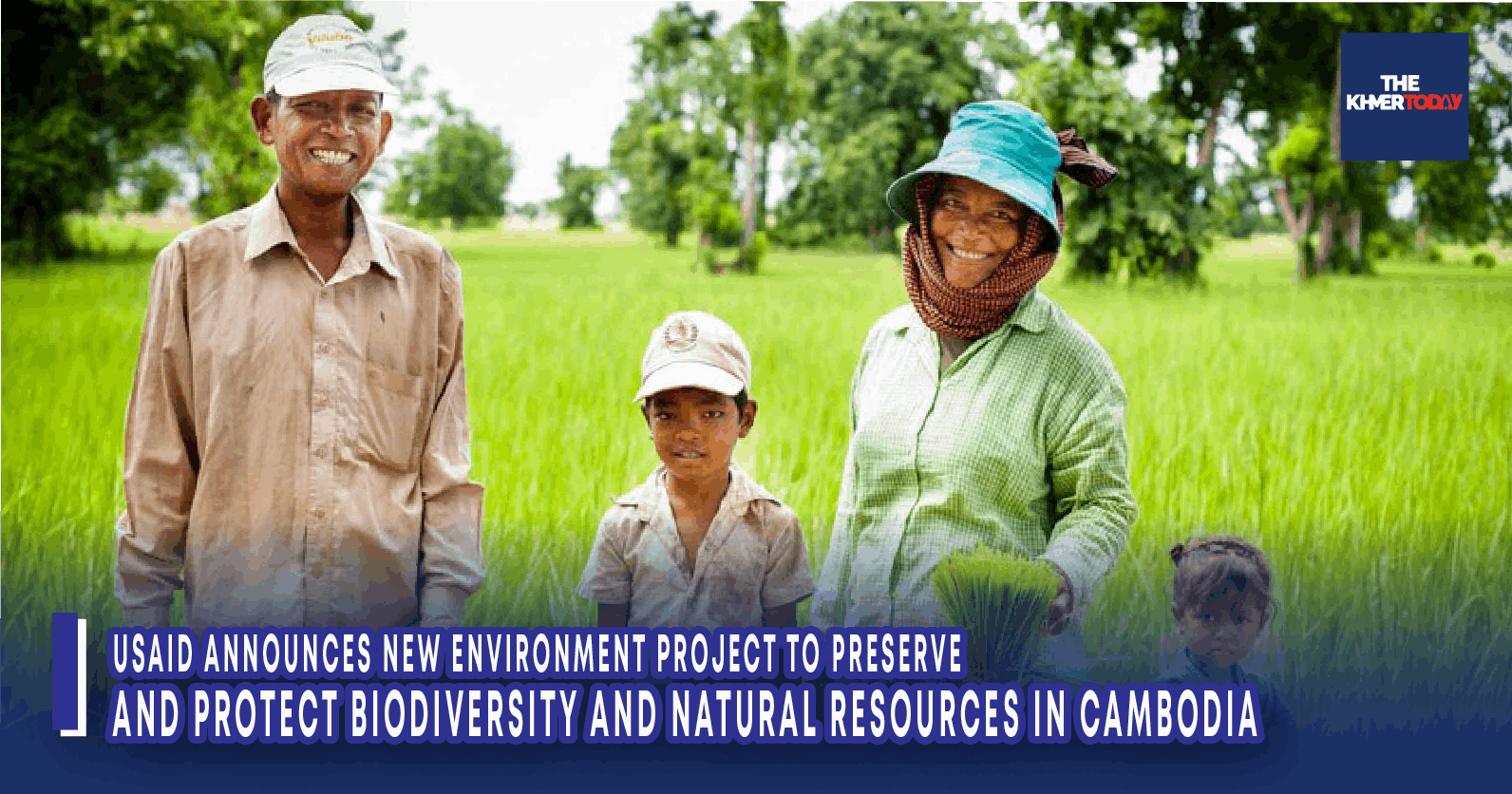USAID Announces New Environment Project to Preserve and Protect Biodiversity and Natural Resources in Cambodia

Phnom Penh, December 05, 2023 --
The United States Agency for International Development (USAID)/Cambodia has announced the award of a new, five-year, US$24 million environment project supporting efforts that preserve biodiversity, protect critical ecosystems, and enhance community livelihoods in Cambodia.
According to a USAID’s press release dated Dec. 4, this new project, USAID Conserve, will expand USAID’s support to communities living in and around protected areas in the provinces of Preah Vihear, Kampong Thom, Stung Treng, and Kratie, while also undertaking new initiatives for communities living around Tonle Sap Lake and along the coastal areas of Koh Kong and Preah Sihanouk.
USAID Conserve will build upon USAID’s efforts to provide direct funding to community-based organisations through an US$8 million grant facility, which will provide at least 250 direct grants to Cambodian organisations. USAID will expand its long history of supporting successful forest carbon financing projects through support for the Kingdom’s efforts to develop blue carbon projects in Cambodia’s flooded forests and coastal areas. USAID Conserve will also develop social and behaviour change communications campaigns at the national, provincial, district, and commune levels focused on combating the illegal trade in wildlife.
“USAID Conserve reflects our commitment to localisation of our development assistance,” stated USAID Mission Director Kerry Pelzman. “Through this activity, we will support community-driven efforts to develop local employment based on the sustainable use of natural resources and leverage private capital to invest in long-term solutions to the climate crisis. Under this approach, USAID Conserve will provide support to the commitment of the Royal Government of Cambodia to achieve carbon neutral status by 2050.”
USAID Conserve will be led by Tetra Tech ARD and implemented by a consortium of partners, including the Wildlife Conservation Society and Conservation International.